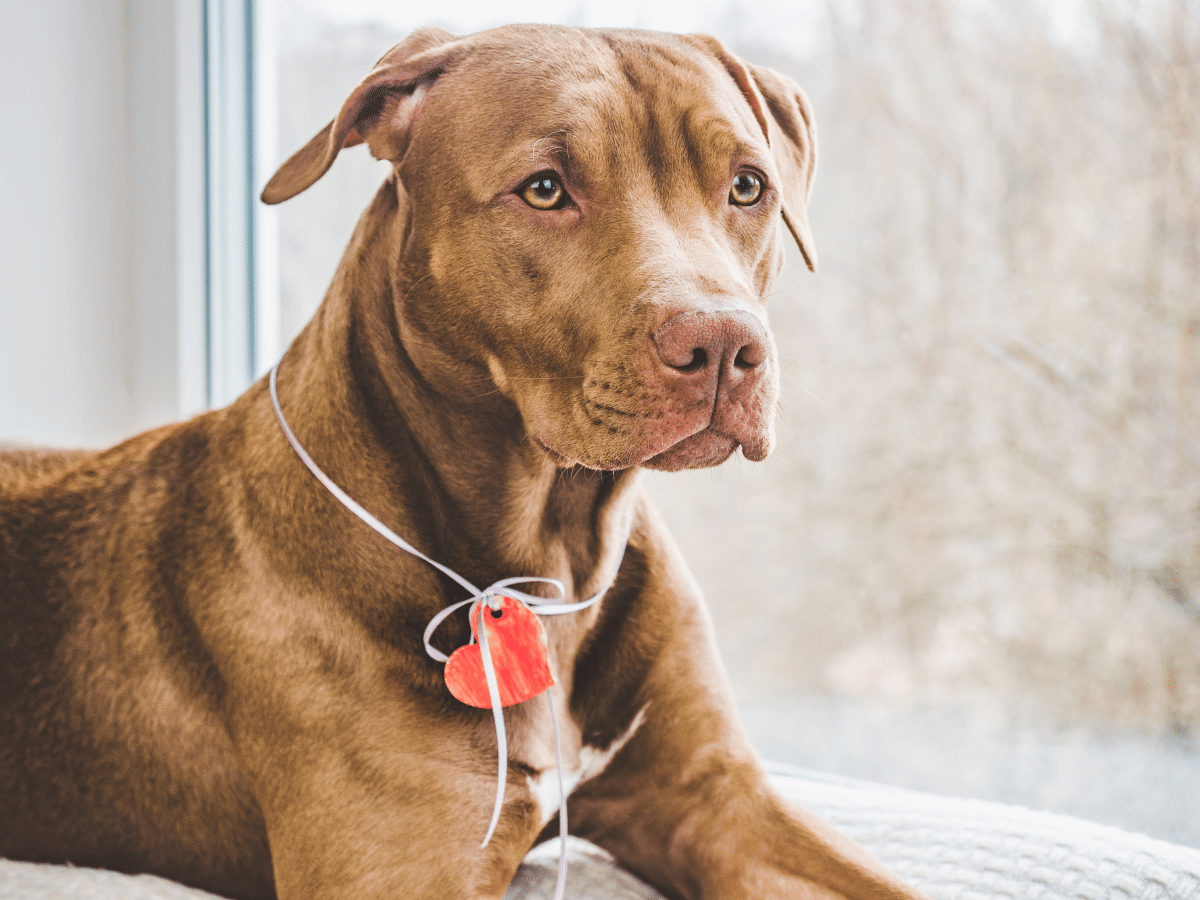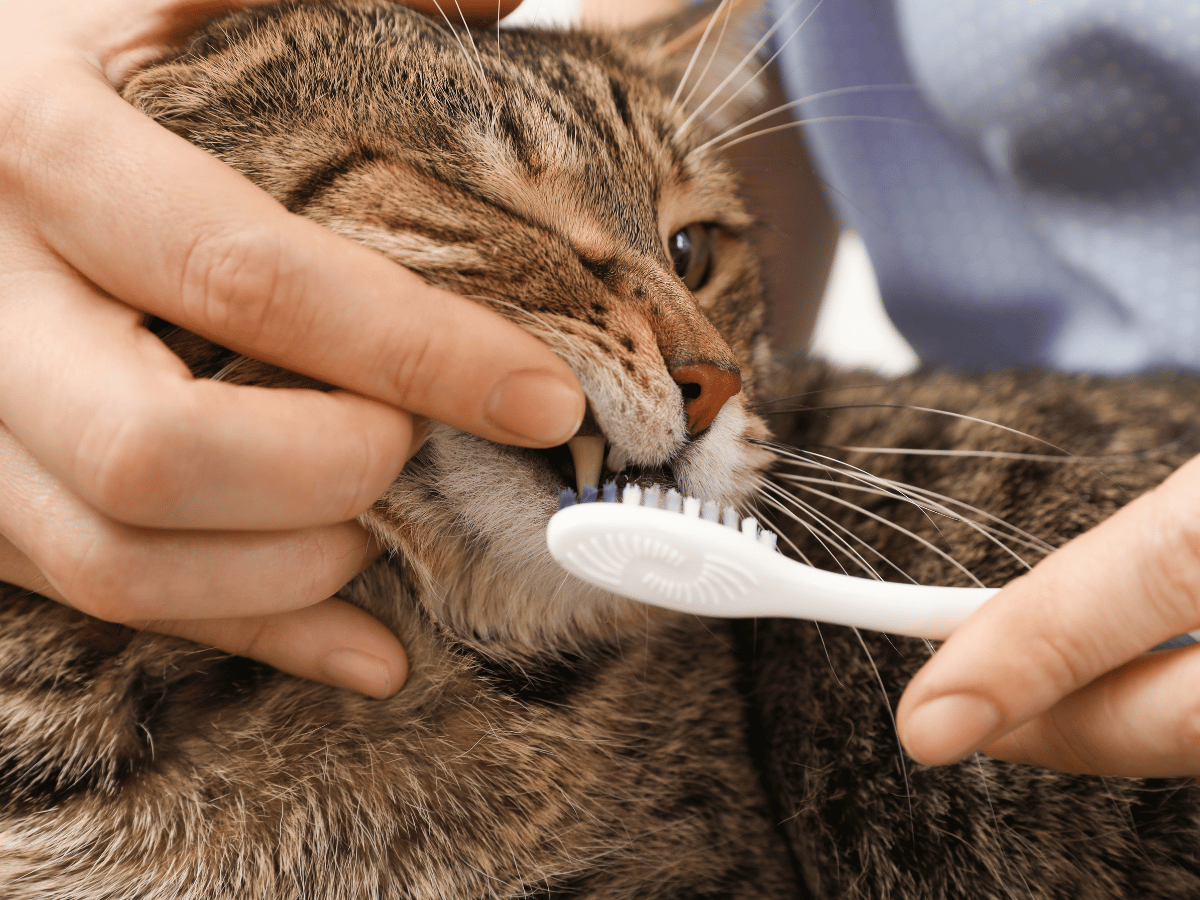
Does Your Dog Suffer from Heart Arrhythmia? Stock Up on These 8 Homemade Foods 2025
Wondering how to treat arrhythmia in dogs? Then you've come to the right place!
In this article, we will guide you through the foods you can use to support your canine family member during this condition.
Veterinarians typically diagnose arrhythmias in dogs by engaging your furry friend in vigorous activity and then listening to their heart with a stethoscope to check for any abnormalities.
Additionally, a 24-hour monitoring period is required to determine the frequency and severity of the rhythm disturbance.
Using our knowledge and experience in holistic medicine, my team and I at HomeoAnimo have written this article to share with dog parents and pet lovers the best foods to choose to manage arrhythmia in dogs and maintain your pet's overall heart health.
And as a bonus, we reveal our high-quality natural home remedy for arrhythmia in dogs.
How about we start by getting some information on what arrhythmia in dogs really is?
What is arrhythmia in dogs?

Arrhythmia in dogs is an irregularity in the heart rhythm. It is usually characterized by frequent abnormal heartbeats.
When your dog suffers from arrhythmia, their heart may beat too slowly or too quickly. It's not uncommon for dogs with this condition to even skip a heartbeat or two from time to time.
Now that we've clarified that, let's talk about the types of arrhythmia in dogs.
What are the types of arrhythmia in dogs?

There are four (4) types of arrhythmia in dogs, which we will briefly explain below:
Atrial fibrillation
Atrial fibrillation occurs when the upper chambers of a dog's heart, called the atria, generate electrical impulses in a confused and disorganized manner. This causes the dog's heart to contract rapidly. This condition is also called "fibrillation."
Although this type of arrhythmia in dogs is common in large breeds, it is often seen in German Shepherds, Boxers, Irish Wolfhounds, Newfoundlands, Doberman Pinschers, and Great Danes.
Heart block
Heart block or atrioventricular block occurs when electrical impulses from the atria fail to reach the ventricles, which are the pumping chambers of the heart.
This results in either a very slow heart rate or the heart skips a beat altogether. All dog breeds are vulnerable to this type of arrhythmia.
If your dog suffers from this type of arrhythmia, he will likely experience fainting, weakness, and extreme lethargy.
Sinus arrhythmia
Sinus arrhythmia usually occurs when the dog is at rest. In fact, it is completely normal for your dog's heart rate to accelerate when he breathes in while at rest. This accelerated heart rate will eventually slow down when your dog breathes out.
Sick sinus syndrome
Sick sinus syndrome occurs when the sinus node fails to generate the electrical impulses that cause the heart to contract. This eventually causes the heart to temporarily stop beating.
Although the duration of this cessation varies from dog to dog, a dog is most likely to collapse when the heart stops beating for approximately eight (8) seconds.
Sick sinus syndrome is common in Cocker Spaniels, Boxers, Miniature Schnauzers, Dachshunds, and West Highland White Terriers.
Ventricular arrhythmias
A ventricular arrhythmia is characterized by an abnormally rapid heart rate that begins in the atria. When this type of arrhythmia occurs, it is usually followed by a significant decrease in blood flow throughout the system, causing the dog to suddenly faint.
This condition is commonly seen in German Shepherds, Boxers, and Bulldogs.
Now, let's discuss the seriousness of arrhythmia in dogs.
How serious is arrhythmia in dogs?

To be honest, arrhythmia isn't an immediate cause for concern in dogs. Believe it or not, your faithful companion usually experiences this condition from time to time, as in the case of sinus arrhythmia.
Now let's talk about the causes of arrhythmia in dogs.
What causes arrhythmia in dogs?

Although arrhythmia in dogs is usually triggered by confused and disorganized electrical impulses in the heart, the following factors can significantly contribute to the onset of this health condition:
- Congenital disease
- Adverse effects of injuries
- Infections and other diseases
- High levels of stress and anxiety
Now that we've covered that, let's talk about the signs of arrhythmia in dogs.
Signs of Heart Arrhythmia in Dogs

Here are the signs and symptoms you should watch for regarding arrhythmia in dogs:
- Unexpected fainting
- Sudden lethargy or weakness
- Lack of liveliness
- Stiff or wobbly movement
- Loss of appetite
- Nausea and vomiting
It is crucial to keep in mind that you should immediately administer a home remedy for arrhythmia in dogs if you notice your companion experiencing repeated syncope or fainting.
This health condition can easily worsen and could even lead to fatal side effects if proper care and attention are not given immediately.
Next, here are the crucial things to keep in mind when it comes to homemade foods to feed and use to support your dog when he or she is suffering from cardiac arrhythmia.
How to Naturally Treat Arrhythmia in Dogs

Contrary to popular belief, you don't have to immediately resort to "conventional" medications when your dog suffers from arrhythmia. Be sure to stock up on the following homemade foods to support your canine family member during this condition:
Cayenne
According to the US Department of Agriculture (USDA) , cayenne peppers contain an organic compound called capsaicin that helps protect the heart from inflammation.
The onset of inflammation in the heart usually causes abnormal electrical impulses to be sent to the atria and ventricles, which can lead to arrhythmia.
To use cayenne as a home remedy for arrhythmia in dogs, simply add a pinch of this spice to your dog's regular diet.
Make sure to mix the cayenne well with your food to neutralize its spiciness. It's also important not to get cayenne in your eyes or nose, as it can cause irritation.
Parsley
A study published by the National Center for Biotechnology Information (NCBI) reveals that parsley is rich in vitamin B9, also known as folate or folic acid. Vitamin B9 is known to help lower homocysteine levels in the body, which are linked to cardiovascular disease.
To use parsley as a home remedy for arrhythmia in dogs, put a handful of this leafy herb in a blender with a little water and blend well until it reaches a soup-like consistency.
Add this parsley concoction to your dog's water bowl or sprinkle a small amount over their meals. As a bonus, it helps get rid of bad dog breath too.
Mango
The National Center for Biotechnology Information (NCBI) reports that mangoes are abundant in heart-healthy compounds like mangiferin, polyphenols, and anthocyanins.
They also contain a high amount of potassium and magnesium, which are known to help maintain a regular heart rate and pulse. Additionally, these compounds also have anti-inflammatory and antimicrobial properties.
To use mango as a home remedy for arrhythmia in dogs, simply add a small amount of this sweet fruit to your dog's meals.
Remember to only give him the flesh and not the skin and hard kernel of the seed.
Orange
As reported by the National Center for Biotechnology Information (NCBI) , oranges are not only rich in vitamin C, but are also good sources of potassium and fiber, which are known to help reduce the risk of cardiovascular disease.
Scientists point out that this may be due to their ability to get rid of bad cholesterol in the body.
To use oranges as a home remedy for arrhythmia in dogs, give your companion a few wedges of this sweet citrus fruit daily.
Make sure to remove the seeds first, as they can taste really bitter.
Bananas
The National Center for Biotechnology Information (NCBI) shares that bananas are loaded with vitamin C, folate, potassium, and fiber, which play important roles in maintaining ideal heart health, especially in getting rid of bad cholesterol.
To use bananas as a home remedy for arrhythmia in dogs, finely mash a banana until smooth. Add this to your canine family member's meals.
Remember not to give your dog too many bananas, as this can make him bloated.
Hawthorn
According to Mount Sinai , hawthorn is rich in antioxidants called oligomeric proanthocyanidins (OPCs) that help maintain ideal blood flow in the coronary artery. These OPCs also have a positive effect on blood pressure levels.
To use hawthorn as a home remedy for arrhythmia in dogs, you can directly give two to three berries to your four-legged friend. You can also dry the berries and then mix them into your dog's food.
Ginger
The National Center for Biotechnology Information (NCBI) reveals that ginger is rich in organic compounds that have antihypertensive properties. High blood pressure can cause the heart to beat erratically, as is the case with arrhythmia in dogs.
To use ginger as a home remedy for arrhythmia in dogs, grate a thumb-sized piece and mix it directly into your dog's food. Grating ginger not only helps remove the stringy parts but also neutralizes its pungent taste.
Dandelion
According to the National Center for Biotechnology Information (NCBI), dandelions are rich in organic compounds such as hydroxycinnamic and chicoric acids that are known to reduce bad cholesterol and triglyceride levels.
High levels of bad cholesterol and triglycerides are considered key factors in the development of cardiovascular disease.
You can use the flowers, leaves, and roots of dandelion as a home remedy for arrhythmia in dogs. You can either give the flowers and leaves directly to your canine family member, or put the entire plant in a blender with a little water to make dandelion juice.
Contrary to popular belief, you don't have to immediately resort to "conventional" medications when your dog suffers from arrhythmia.
Here's an all-natural home remedy you might consider having in your pet care kit.
Our Favorite Home Remedy for Arrhythmia in Dogs
 HomeoAnimo's ARRHYTHMIA product contains homeopathic ingredients to maintain a regular heartbeat and is proven to be an excellent support for promoting healthy blood circulation in the heart. It is chemical-free and made with a gentle, holistic approach.
HomeoAnimo's ARRHYTHMIA product contains homeopathic ingredients to maintain a regular heartbeat and is proven to be an excellent support for promoting healthy blood circulation in the heart. It is chemical-free and made with a gentle, holistic approach.
To use HomeoAnimo's ARRHYTHMIA product as a home remedy for arrhythmia in dogs, simply give your faithful companion one (1) spray each day, in water or directly into the mouth. Repeat this process until the symptoms disappear.
Now, let's talk about what could possibly happen if arrhythmia in dogs is left untreated.
What happens if arrhythmia in dogs is left untreated?

If your dog suffers from one of the more serious types of canine arrhythmias, such as atrial fibrillation, heart block, sick sinus syndrome, and ventricular arrhythmias, he could be prone to cardiovascular problems, strokes, and fainting if this condition is not immediately and properly treated and monitored.
It is not uncommon for some dogs with arrhythmia to even experience sudden cardiac arrest if this health problem is not corrected.
Now, let's discuss whether arrhythmia is common in dogs.
Is cardiac arrhythmia common in dogs?

The short answer is yes.
Arrhythmia is quite common in dogs and should not be a cause for concern if your four-legged friend experiences this condition once or twice.
Conclusion
If your dog is suffering from arrhythmia, our Free Pet Health Referral will help you achieve the peace of mind you've always wanted for your pet.
However, if you notice that your dog is already experiencing fainting, weakness, stiff or unsteady movements, and loss of appetite, then it is important to consult your veterinarian.




















Leave a comment
This site is protected by hCaptcha and the hCaptcha Privacy Policy and Terms of Service apply.